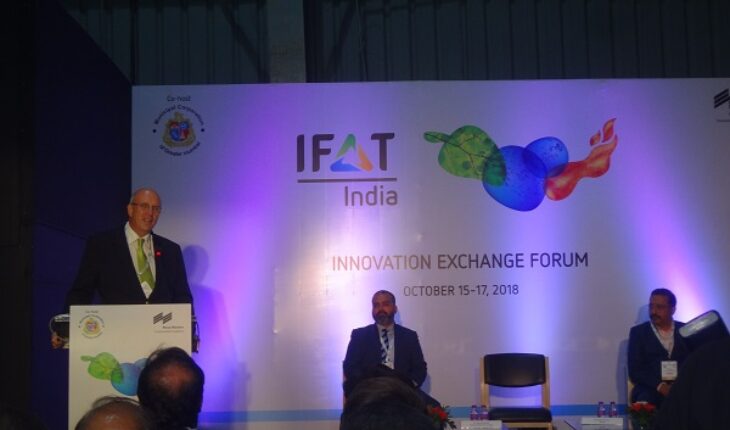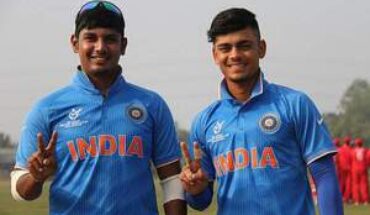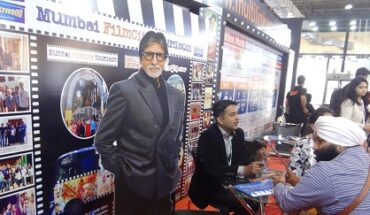IFAT India 2018 began on a high note here today with key industry players urging for greater emphasis on solutions and use of latest technological innovations in environment issues in the country. The event is being co-hosted by the Municipal Corporation of Greater Mumbai, which is involved in promoting diverse innovative environment technologies for providing a cleaner and sustainable environment for the city.
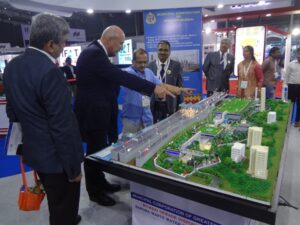 Bhupinder Singh, CEO, Messe Muenchen India, said this event would provide an opportunity to industry experts, policy-makers and business leaders to discuss regional strategies on numerous environmental challenges and seek solutions through formal interactions. This show had grown by 40% since the last edition with over 235 exhibitors from 25 countries participating and over 8,000 visitors expected this year.
Bhupinder Singh, CEO, Messe Muenchen India, said this event would provide an opportunity to industry experts, policy-makers and business leaders to discuss regional strategies on numerous environmental challenges and seek solutions through formal interactions. This show had grown by 40% since the last edition with over 235 exhibitors from 25 countries participating and over 8,000 visitors expected this year.
Describing heavy pollution as one of the perils today, he said about 600 million people face water stress and around 200 die daily.
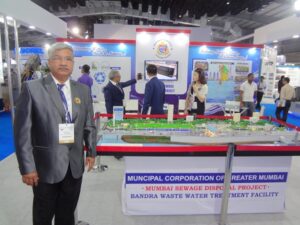 Dr Jurgen Morhard, Consul General of the Federal Republic of German in Mumbai, said that Germany had begun to witness recently climate change since last year through water scarcity , lakes filled with algae, hailstorms and thunderstorms.
Dr Jurgen Morhard, Consul General of the Federal Republic of German in Mumbai, said that Germany had begun to witness recently climate change since last year through water scarcity , lakes filled with algae, hailstorms and thunderstorms.
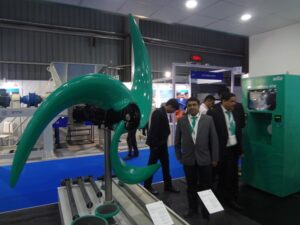 K. Rajeev, Deputy Municipal Commissioner, MCGM, highlighted the Mumbai Municipality’s efforts in water recycling and reuse in its search for solutions to the city’s environmental problems. With Mumbai witnessing phenomenal growth in population and consequential increase in its water demand, the MCGM’s Expert Committee has suggested development of its Gargal, Pinjal and Damanganga-Pinjal River-link projects to augment the city’s water supply in a phased manner.
K. Rajeev, Deputy Municipal Commissioner, MCGM, highlighted the Mumbai Municipality’s efforts in water recycling and reuse in its search for solutions to the city’s environmental problems. With Mumbai witnessing phenomenal growth in population and consequential increase in its water demand, the MCGM’s Expert Committee has suggested development of its Gargal, Pinjal and Damanganga-Pinjal River-link projects to augment the city’s water supply in a phased manner.
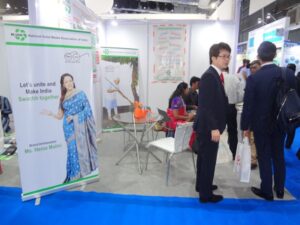 Sudhakar N. Shinde, Executive Engineer (MSDP) MCGM, said Mumbai is the largest city in India with 12.44 million population , present water supply of 4,000 mld and sewerage system that is in operation over the past 130 years. Future planning included a Second Sewerage Master Plan (MSDP-II) being prepared for 2034 including upgradation of the sewerage system, recycle and reuse of treated wastewater and elimination of pumping station – thus reducing its carbon footprint, he said.
Sudhakar N. Shinde, Executive Engineer (MSDP) MCGM, said Mumbai is the largest city in India with 12.44 million population , present water supply of 4,000 mld and sewerage system that is in operation over the past 130 years. Future planning included a Second Sewerage Master Plan (MSDP-II) being prepared for 2034 including upgradation of the sewerage system, recycle and reuse of treated wastewater and elimination of pumping station – thus reducing its carbon footprint, he said.
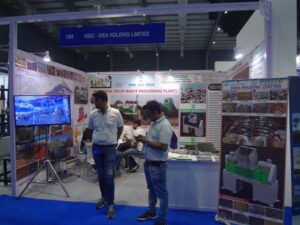 In 2015, the World Economic Forum recognized water scarcity as the largest global risk in terms of potential impact over next decades. The MCGM will be creating tertiary treated water of approximately 1700 mld in phases based on demand, while the recycled water will be used for non-potable and industrial purposes, charging of fire hydrants etc,.
In 2015, the World Economic Forum recognized water scarcity as the largest global risk in terms of potential impact over next decades. The MCGM will be creating tertiary treated water of approximately 1700 mld in phases based on demand, while the recycled water will be used for non-potable and industrial purposes, charging of fire hydrants etc,.
The IFAT participants included companies with exciting eco-friendly products. Yeonshik Kim, Representative Director and CEO of WISHTECH, Korea highlighting +Juto +, (Jungle Toilet) that is biodegradable and usable anywhere. “This toilet is the result of 4 years research and is being sold at US $ 15 a piece with the latest order being 1,000 units exported to Nepal and enquiries coming in from around the world. We are also promoting technology for converting human faeces and urine into biodegradable, eco-friendly waste,” he said.
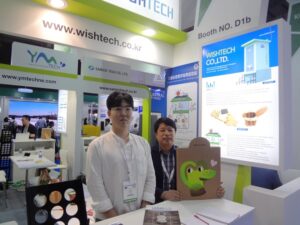 Aniruddha Joshi, Sr. Manager, Waste Water Management, Wilo Mather and Platt Pumps Pvt. Ltd., said that India has 16% of global population but only 4% of world’s water resource with presently barely 18% rural population having access to treated water. Drinking untreated water could lead to diseases like cholera, diarrhea, malaria and typhoid, besides being number one reason for infant mortality, while growing water shortage, water pollution and highly-inefficient usage pattern aggravated the situation, he said.
Aniruddha Joshi, Sr. Manager, Waste Water Management, Wilo Mather and Platt Pumps Pvt. Ltd., said that India has 16% of global population but only 4% of world’s water resource with presently barely 18% rural population having access to treated water. Drinking untreated water could lead to diseases like cholera, diarrhea, malaria and typhoid, besides being number one reason for infant mortality, while growing water shortage, water pollution and highly-inefficient usage pattern aggravated the situation, he said.
He said the company is developing high-efficiency solutions and technologies that conserve water resources while also carrying out water purification through its products like water kiosks that are being used in villages, gram panchayats, districts, schools, hospitals, bus stands, railway stations, public centres etc., besides also huge submersible propellers use in waste water treatment by transporting household, commercial and industrial sewage to treatment plants.
Germany’s SolteQ Energy is highlighting maximum efficient use of wind energy through windmills for creating clear drinking water and free electricity from sea water, brackish water and even waste water.


